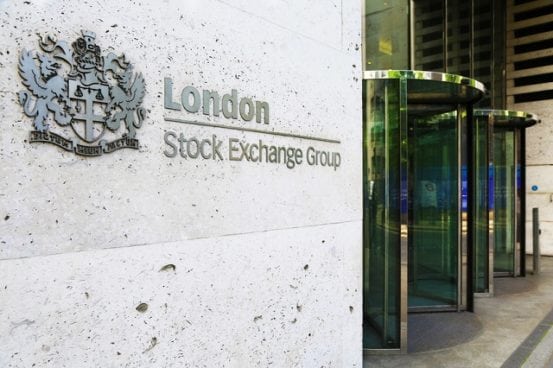Investors pulled a net £713m from London-listed European equites ETFs in June, according to new data from LSEG Lipper.
That made it the worst performing asset class within the ETF space in terms of flows, followed by financials ETFs which shed £485m. Commodities, energy and utilities ETFs also saw large net outflows.
On the other side of the equation, global equities ETFs saw the largest net inflows in June at £3.4bn, up from £2.3bn in May. Second was US equities with £2.3bn, and third was euro-denominated corporate bonds ETFs at just over £1bn.
In terms of providers, BlackRock’s iShares ETFs drew the most money in, followed by Xtrackers from DWS and Amundi in third place.
In aggregate, across all asset classes, London listed ETFs booked an £8.3bn net inflow in June.
See also: US Solar Fund tees-up manager switch as it tries to stem slump
According to Lipper data, the average daily traded value for all ETFs on the London Stock Exchange in June was £10bn. This accounted for 11.9% of the LSE’s average daily turnover.
Turning to the active versus passive battle, Lipper reported there were 52 active and 1,587 passive ETFs listed on the LSE in June, compared to 98 active and 2,923 passive ETFs registered for sale in at least one country in Europe. This means 53.1% of all active and 54.2% of all passive ETFs are at least cross-listed on the LSE.
While active ETFs only account for 1.3% of total ETF assets, they took 4.63% of flows in June, a significant over-representation, although this was down from the 8.06% they took in May.
See also: Liontrust extends GAM offer period for third time as NewGAMe reveals 100-day plan
Lipper said this indicates that investors are cottoning on to the fact that ETF does not always mean passive, and interest in active ETFs is picking up.
Dewi John, head of UK and Ireland research at LSEG Lipper, commented: “Equity Europe saw the larges outflows over the month, as the classification shed £713m. However, what’s most noteworthy is the number of equity sector classifications being sold down; Financials (-£485m); Energy (-£314m); Utilities (-£303m); Consumer Staples (-£202m); and Gold & Precious Metals (-£146m). Although ETFs are considered a good way of getting tactical sector exposure, the prevalence in—only—the bottom 10 is rather unusual.
“Investors may well be cooling on pro-cyclical financials, though one can argue this either way, as higher base rates translate into higher bank margins. Utilities are inflation-sensitive, and the most bond-like of equity sectors, given the fixed nature of their revenues, and will be more negatively impacted by rising rates because of their higher debt levels. Think UK water companies and shudder.”
–
PA EVENT: Autumn Congress, September 27th– 29th | RSVP via email
Hosted at The South Lodge Hotel. Transport and accommodation will be provided for the duration of the event.
Our Autumn Congress will serve as a comprehensive platform for discussing the key trends, challenges, and innovations shaping the wealth management landscape. It will bring together thought leaders and industry professionals for enlightening discussions and networking opportunities. Register link |
Sponsors include Alliance Bernstein, Alger, Boston Partners, Baillie Gifford, CCLA, Janus Henderson, GAM, Jupiter AM and much more! Please see the full line-up on our website: AC2023
Asia Roundtable: 5th October | RSVP via email
Host location to TBC











